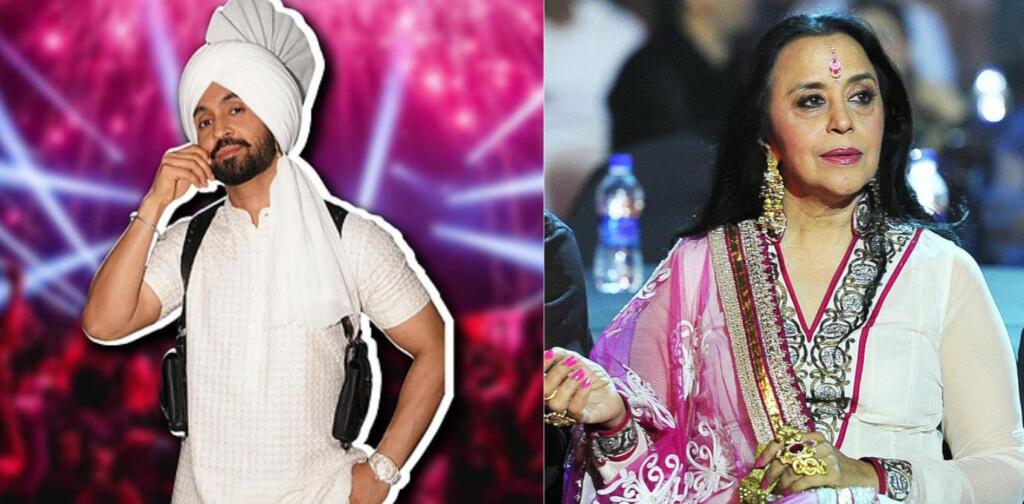Recently, Diljit Dosanjh, who has a huge global fan base, faced criticism for his performances at concerts where patrons were observed drinking. Ila Arun, a well-known Indian film singer who has sung some unforgettable numbers like, “Choli Ke Peeche Kya Hai”. Arun recently narrated some of her experience while attending one of Diljit’s concerts, she explained how she was left disturbed as the crowds were more interested in drinking than listening to the songs.
According to the shocking disclosures made by the Bollywood veteran vocalist, Punjabi performer Diljit Dosanjh is allegedly covertly promoting intoxication during his performances. Ila Arun’s remarks reveal a darker side to his works that might be hurting young people, despite the fact that he is well-known for his energetic performances and platinum hits. Although Ila Arun is well-known for her lively performances and number-one hits, the comments highlight a darker side to Diljit’s concerts.
According to the Bharat Times, Ila Arun expressed her opinion at a recent literature festival, claiming that Diljit is unquestionably a fantastic singer. She then went on to claim that the crowd that follows him may be going more for the party and drinks than the music itself. According to her, the prominence of alcohol during his performances had become so evident that the music itself has been overshadowed. “I was stuck in a long traffic jam in Jaipur, and I saw the youth in an intoxicated state. They were not there to appreciate the songs; they were just there for the alcohol,” Arun stated, exposing the problematic atmosphere that Diljit’s concerts seem to foster. She further elaborated that despite the popularity of Diljit’s songs, the crowd seems to be motivated more by what they would get out of the entertainment than by the music itself.
Kolkata 🇮🇳
LOOK AT THIS BEAUTY 🫶🏽
DIL-LUMINATI TOUR
Year 24 🪷
Next BENGALURU 🛩️ pic.twitter.com/rUFnANpjgf
— DILJIT DOSANJH (@diljitdosanjh) December 1, 2024
Arun continued to argue that the audience may dance and move to the rhythm and beats of the songs, but alcohol is an unnecessary addition to the performances. “I covered my face. I did not want to be recognised in such a place,” she said. “They don’t come to enjoy the music. They have come for entertainment and the drink,” she added.
Even though it makes sense that music festivals and performances have a festive vibe, it is unsettling when the emphasis shifts from appreciating the art form to abusing intoxications and drugs that cause harm. Her critique is made at a time when concerns are being expressed regarding the effect that these performances have on young people, who can see them as chances to act recklessly. Not to forget that Diljit made a very controversial statement when the Telangana government issued a directive to not promote alcohol in songs, Dosanjh had said that he would continue singing songs that have references to alcohol and even went on to suggest that if all states in India declared themselves dry, he would stop singing such songs but not alter his lyrics.
Arun’s words expose a looming concern about celebrities’ shaping of social behavior. At the same time, respect for freedom in the art of performers can never be underestimated; it also needs recognition of their responsibility when such influence impacts naive fans. The frank remarks made by Ila Arun need to act as a warning to viewers and artists alike. It’s vital to celebrate culture and enjoy music, but it’s also critical to consider the atmosphere these gatherings generate and the possible dangers of encouraging bad habits like binge drinking.
